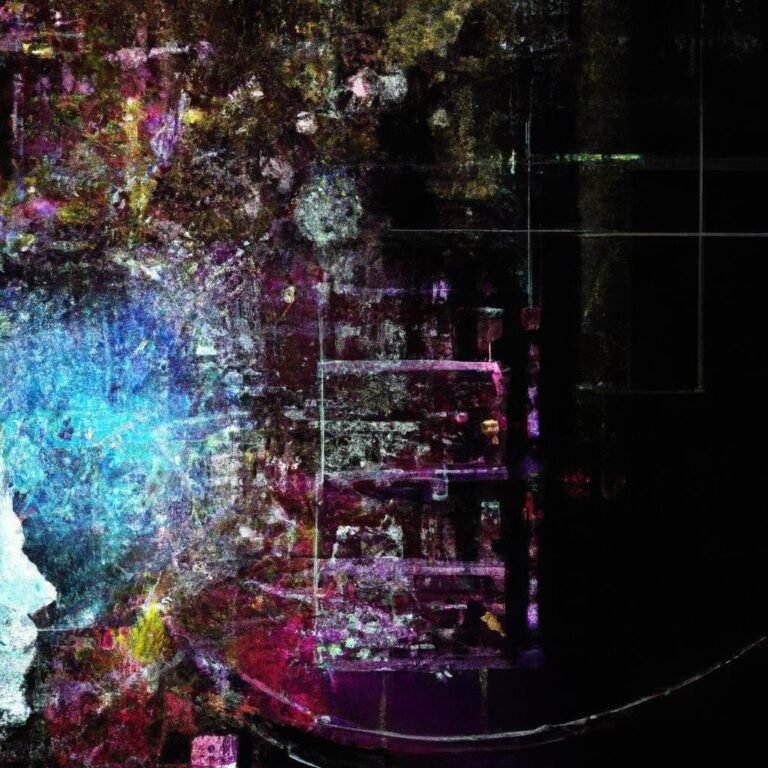In a world increasingly shaped by artificial intelligence, we stand at a complex crossroads—a thrilling frontier of innovation and a shadowy expanse of uncertainty. AI has become a formidable force in our lives, promising unprecedented progress in medicine, education, and countless industries. Yet, with each leap forward, we’re confronted by an unsettling question: at what cost does this progress come? The very tools designed to enhance our lives can also tighten the grip on our freedoms, reshape our perceptions, and challenge the essence of our humanity.
Imagine a future where the conveniences of predictive algorithms and personalized recommendations coalesce with the subtle erosion of privacy and autonomy. The same technology that enables us to connect, learn, and thrive has the potential to surveil, manipulate, and control. As we thrive off our AI companions, we must grapple with their dual nature—they are both the architects of our dreams and the harbingers of our fears.
Join me as we explore this intricate dance between progress and freedom. Together, we’ll navigate the exhilarating advancements that AI brings, while shining a light on the ethical dilemmas and personal sacrifices that often accompany this brave new world. In this exploration, we seek not just to celebrate the marvels of AI, but to ensure that our humanity remains at the forefront of this vital conversation. Our future may be shaped by algorithms, but it is our hearts and minds that must steer its course.
Table of Contents
- The Promise of AI: Unleashing Innovation While Guarding Our Freedom
- Navigating Ethical Dilemmas: The Responsibility of AI Developers
- Empowering Communities: Ensuring Inclusive Access to AI Advancements
- Striking a Healthy Balance: Crafting Policies That Protect and Propel Us Forward
- Key Takeaways
The Promise of AI: Unleashing Innovation While Guarding Our Freedom
The emergence of artificial intelligence has transformed our world in ways previously confined to the realm of science fiction. Imagine a future where machines can augment human creativity, unlocking new possibilities in various sectors. AI has the power to revolutionize industries by:
- Enhancing productivity: Streamlining mundane tasks, allowing people to focus on what truly matters.
- Fostering creativity: Offering innovative tools that inspire artists, writers, and entrepreneurs to push beyond traditional boundaries.
- Solving complex problems: Analyzing vast amounts of data to identify trends and solutions that were once elusive.
However, with great power comes great responsibility. As we embrace these enhancements, a critical conversation must unfold about how to maintain our freedom amid rapid technological advancement. The challenge lies in the potential for AI to infringe on privacy or manipulate our choices. To guard against this, we need:
- Transparent algorithms: Ensuring that AI systems operate under clear guidelines that prioritize ethical considerations.
- Robust legal frameworks: Developing laws that protect individual rights without stifling innovation.
- Public engagement: Involving communities in discussions around AI, fostering a collective understanding of its implications.
Navigating Ethical Dilemmas: The Responsibility of AI Developers
As the architects of artificial intelligence, developers find themselves at the crossroad of innovation and morality. The capacity to create algorithms that can radically enhance accessibility, efficiency, and decision-making is accompanied by a weighty burden of responsibility. Ethical considerations are not just an afterthought; they are central to the entire development process. The nuances of bias, privacy, and user autonomy must be contemplated, as each decision can have profound implications. In this relentless pursuit of progress, it is critical to establish a framework that fosters accountability, ensuring that technology does not exploit its users but instead uplifts and empowers them.
To navigate these choppy waters, AI developers must embrace a holistic approach that encompasses diverse perspectives and expertise. A collaborative effort can lead to the creation of ethical guidelines that address potential pitfalls. Consider the following fundamental principles as a foundation for responsible AI development:
- Transparency: Clearly communicate how AI systems operate and the data they use.
- Accountability: Establish mechanisms for holding developers and organizations accountable for the outcomes of their AI systems.
- Inclusivity: Involve stakeholders from varied backgrounds to mitigate bias and enhance representation in AI design.
- User Autonomy: Design systems that respect individual choice and control over personal data.
By adhering to these guiding tenets, the AI community can alleviate fears surrounding its potential misuse while harnessing its transformative power. The journey ahead for AI developers is fraught with ethical dilemmas, yet it is in this tension between progress and responsibility that the true potential of technology resides. This delicate balance can set the stage for a future where AI remains a powerful ally rather than a source of conflict.
Empowering Communities: Ensuring Inclusive Access to AI Advancements
In an era where artificial intelligence is reshaping the fabric of our lives, it is essential to prioritize inclusive access for all communities, particularly those historically marginalized. The promise of AI technologies extending beyond mere convenience to touch on essential services—healthcare, education, and employment—should not be a privilege reserved only for the affluent. These advancements can drive social change and empower individuals to break the cycles of poverty and disenfranchisement when they are equitably distributed. By fostering a culture of collaboration, we can ensure that AI initiatives are not top-down impositions but rather community-driven solutions that resonate with the unique needs and aspirations of different populations. The journey toward equitable AI requires a commitment to community engagement, transparency, and shared ownership.
To facilitate this vision, we must adopt proactive strategies that dismantle barriers and enhance digital literacy across diverse demographics. Key initiatives include:
- Training Programs: Offering workshops that equip individuals with the skills to utilize AI technologies effectively.
- Community Partnerships: Collaborating with local organizations to expand outreach and foster trust in AI systems.
- Policy Advocacy: Pushing for legislation that mandates equitable access to technological resources.
- Resource Accessibility: Ensuring that free or low-cost technology is available to underserved communities.
Moreover, establishing a feedback mechanism that allows community members to voice their concerns and experiences will enrich the development of AI tools. The more diverse perspectives we incorporate, the more robust, ethical, and inclusive the outcomes will be.
Striking a Healthy Balance: Crafting Policies That Protect and Propel Us Forward
As we stand at the crossroads of innovation and ethical responsibility, it’s crucial we reshape our approach to AI development and governance. The rapid evolution of this technology offers unprecedented opportunities, but it simultaneously brings forth potential risks that can undermine society’s core values of freedom and privacy. To navigate these complexities, we must embrace a multifaceted policy framework that champions transparency, accountability, and equity. The conversation must shift beyond mere implementation, asking ourselves how we can harness AI to not only enhance productivity but also to uplift the individual and community, ensuring that no one is left behind on this transformative journey.
Consider the following guiding principles that could help steer our policies towards a balanced and equitable future:
- Human-Centric Design: Prioritize technology that enhances human welfare and respects individual rights.
- Ethical Oversight: Establish frameworks for continuous oversight that adapt to the evolving landscape of AI.
- Inclusive Participation: Engage diverse voices in the policymaking process to reflect the needs and concerns of all stakeholders.
The path forward lies in collaborative efforts that align the rapid advancement of AI with our most cherished values. This requires not just policymakers, but also technologists, ethicists, and citizens banding together to create a future where progress does not come at the expense of our freedoms. Through this collective approach, we can build not only resilience but a new paradigm where technology serves humanity rather than dominates it.
Key Takeaways
As we draw this exploration of AI’s dual nature to a close, it’s vital to remember that we stand at a crossroads—a moment in history where the choices we make can shape the future. The advancements in artificial intelligence carry the potential to uplift our society, break barriers, and ignite unprecedented creativity. Yet, intertwined within this progress is a thread of caution that we must heed. The balance between innovation and the freedom that underscores our human experience is delicate and requires our constant attention.
In this age of technology, the dialog we engage in today is not just about the tools we create, but about the values we uphold. Every algorithm, every line of code is a reflection of our intentions as a society. Are we crafting our creations with empathy? Are we safeguarding our freedoms while embracing the future? As we navigate this labyrinth of opportunity and risk, let’s commit to being stewards of our own destiny—champions of ethics, community, and compassion.
So, as you step away from this piece, I urge you to reflect on your role in this conversation. What does progress mean to you, and how can we collectively ensure that our journey with AI empowers rather than enchains? Let’s advocate for a future where technology serves our humanity, a future where we harness the power of AI not as a master, but as a partner in our quest for freedom, creativity, and understanding. Together, let’s ensure that as we advance, we do so with our eyes wide open, our hearts engaged, and our values firmly in place. The responsibility is ours; let’s carry it with courage and hope.





